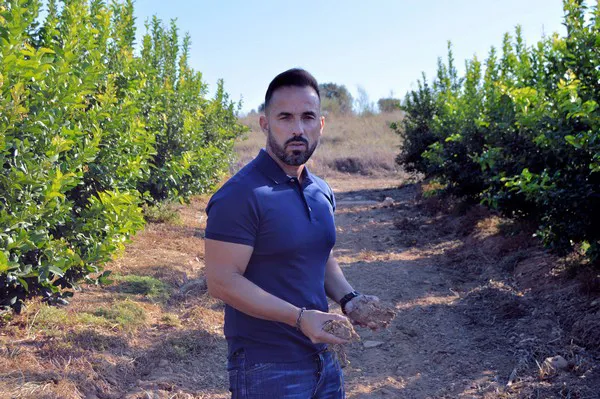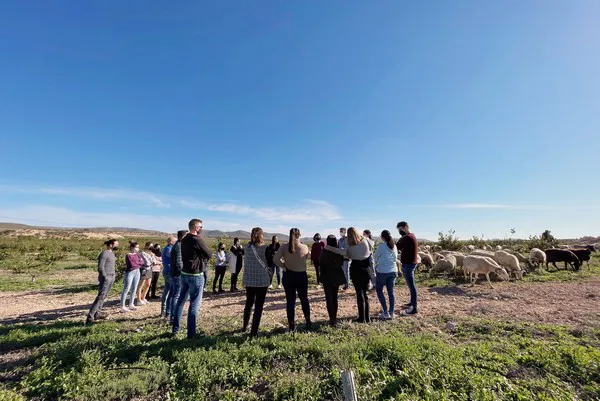Bio Campojoyma wants to turn its crops into authentic living ecosystems where flora and fauna coexist. To advance this goal, they have started the 'Analysis and conservation of biodiversity in biodynamic citrus crops as added value' research project with the University of Almeria.
The University of Almeria's Scientific Collections Research Center (CECOUAL) will catalog and make proposals to promote the biodiversity present in the company's organic-biodynamic lemon crops. In addition, they will carry out a pilot test to incorporate Linaria nigricans, a herbaceous plant endemic to the province of Almeria, into the cultivation system.
 Francisco Jesus Montoya.
Francisco Jesus Montoya.
“Our purpose is having sustainable crops. That's why one of our priorities is conserving biodiversity on our farms. We want to show that it is possible to conserve biodiversity without losing competitiveness. We thank CECOUAL and the University of Almeria for wanting to embark on this research project with us,” stated Francisco Jesus Montoya Sanchez, founder, and manager of Bio Campojoyma.
Meeting between organic lemon producers
Bio Campojoyma wants the entire ecological sector to participate in this endeavor. To achieve this, Esther Gimenez Luque, the director of CECOUAL, and two members of the research team, Jose Luis Molina Pardo and Francisco Jose Gallegos Villegas, met with Capojoyma organic lemon producers to explain to them the details of the project.
“This research project is creating a path that Spain's agricultural sector should follow. Consumers are increasingly concerned about the quality of the products they consume and about the sustainability of their production system,” stated Esther Gimenez.
 Bio Campojoyma workers with CECOUAL researchers.
Bio Campojoyma workers with CECOUAL researchers.
The research project will make it possible to know the biodiversity present in Bio Campojoyma's citrus crops. It will allow researchers to make the first proposal to improve biodiversity and the ecosystem services derived from it through restoration actions and the creation of green infrastructures. This will contribute to the environmental awareness of citizens and consumers on the environmental benefits of incorporating improvements for biodiversity in this cultivation model.
“We are very excited about this research project, as it will allow us to become a more sustainable company involving the workers, who will be able to collaborate in the sampling work, always under the guidelines of the CECOUAL researchers. This initiative has also been highly valued by our clients throughout Europe, as they're also aware of the importance of conserving the environment,” stated Francisco Jesus Montoya.
For more information:
Bio Campojoyma![]()
Tel.: +34 950 386 590
info@campojoyma.com
www.campojoyma.com
